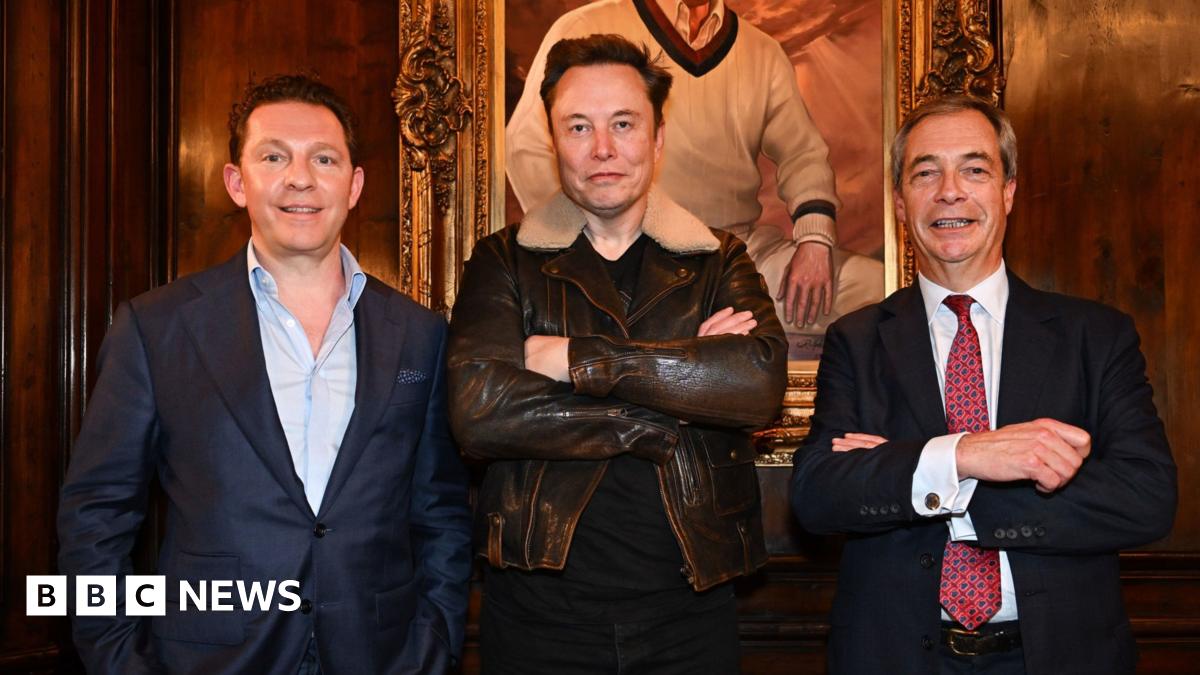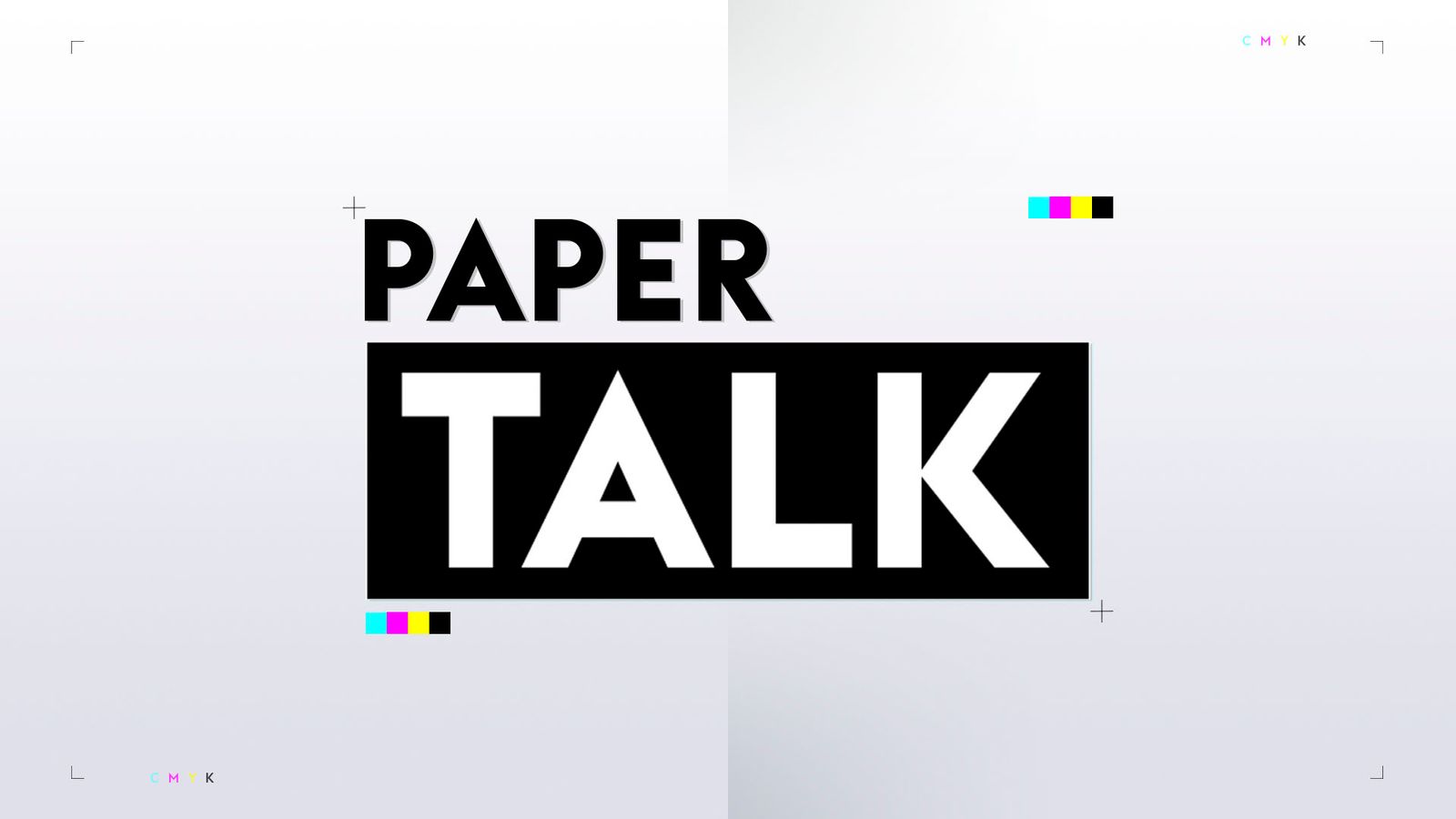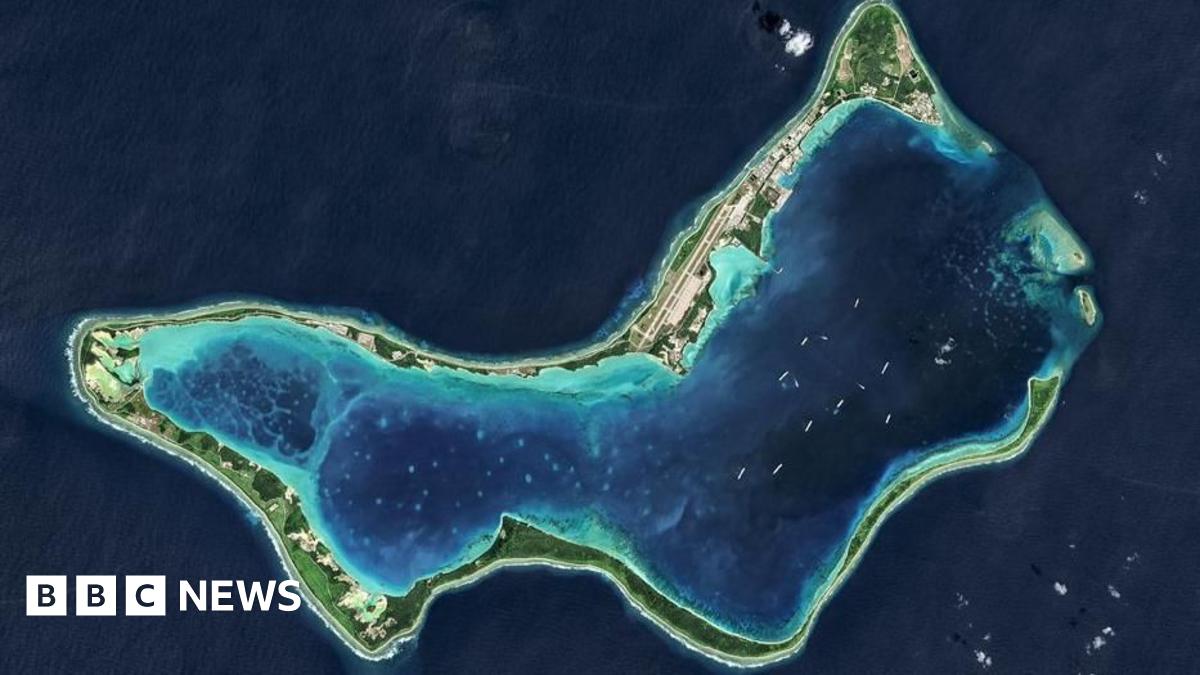World
Huw Edwards’s BBC pay increased by £40,000 last year
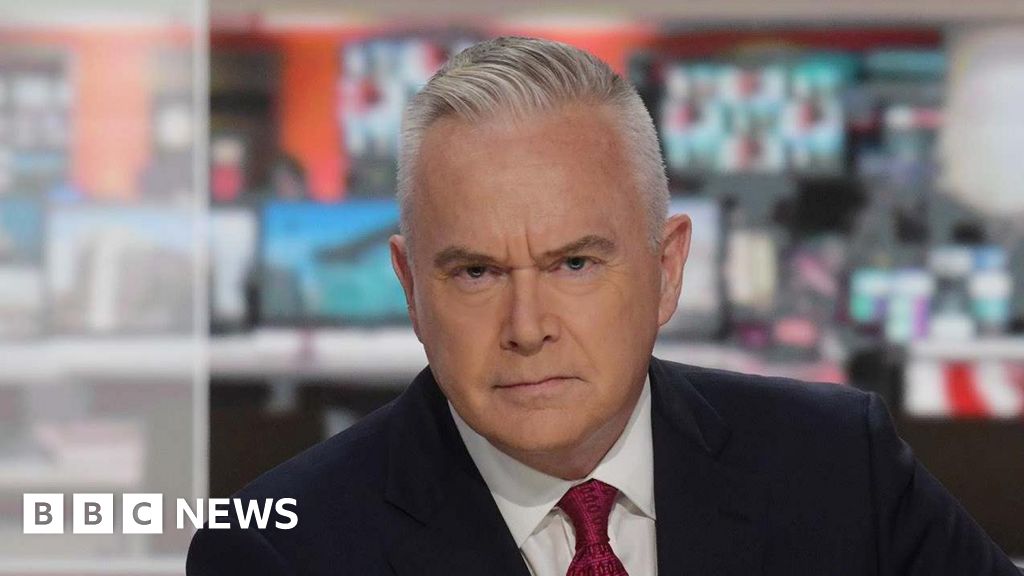
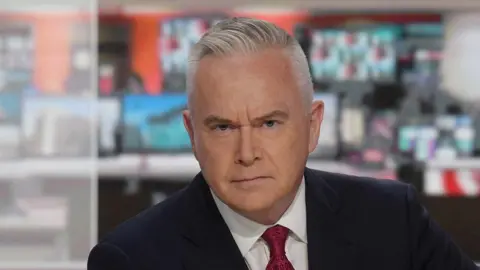 BBC
BBCFormer BBC news presenter Huw Edwards, who resigned from the BBC on medical advice in April, saw his salary increase by £40,000 last year.
Edwards was suspended in July 2023 over allegations in The Sun newspaper of paying a young person for sexually explicit photos.
Police did not take any action against him, saying there was no evidence that a criminal offence had been committed.
He received between £435,000 and £439,999 in the year 2022/2023, which rose to £475,000 – £479,999 between April 2023 and April 2024, the BBC’s latest annual report shows.
Edwards remained on the payroll while suspended, which is normal BBC policy.
Edwards’ departure came nine months after his wife said he had been admitted to hospital with “serious mental health issues”.
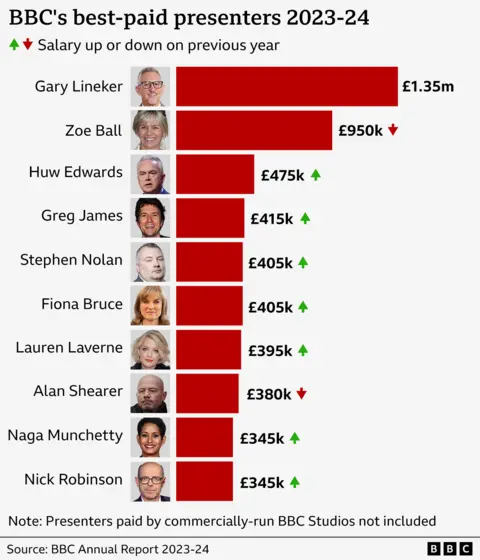
He was also the corporation’s highest-paid newsreader last year.
The BBC confirmed when Edwards resigned that the presenter had not been paid off as part of his departure.
Speaking on Tuesday, the BBC’s director general Tim Davie said: “No-one wants to waste a pound but we need to act proportionately and fairly and I think that’s what we did.
“Prior to any breaking of the (Edwards) story, people do get pay rises for extended responsibility and more hours’ work. So that’s fairly normal, and that’s what resulted in the change.”
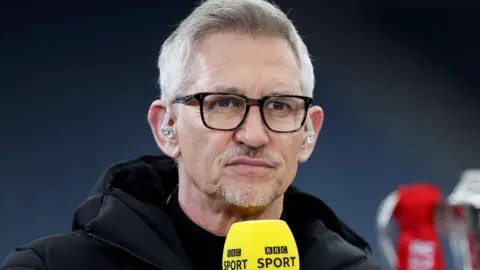 Getty Images
Getty ImagesGary Lineker topped the list of the BBC’s best-paid stars for a seventh year in a row, earning £1,350,000 – £1,354,999 in the last financial year.
BBC Radio 2’s Zoe Ball was the second-highest earner behind the Match of the Day presenter, with £950,000 to £954,999, down £30,000 on last year.
Lineker’s BBC work also includes coverage of the FA Cup final and Sports Personality of the Year.
As usual, the BBC’s annual report does not paint the full picture of what star presenters at the BBC earn.
A huge number are not listed because the corporation does not have to make public the salaries of stars who are paid through its commercial arm BBC Studios or via independent production companies.
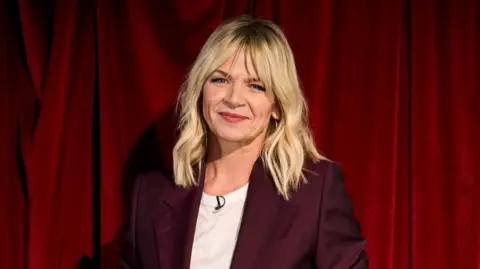 Getty Images
Getty ImagesWho has dropped out and who else is included?
Edwards was third on the list, with BBC Radio 1 presenter Greg James in fourth, with a salary of between £415,000 and £419,999 (an increase of £20,000).
Radio presenter Stephen Nolan and Fiona Bruce, who presents BBC One’s Question Time and fronts other BBC coverage, earned between £405,000 and £409,999. Her work on Antiques Roadshow is not included.
Desert Island Discs and 6 Music host Lauren Laverne is next (£395,000 – £399,999), with football presenter Alan Shearer just behind (£380,000 – £384,999). Shearer saw a salary drop of £65,000 on last year.
BBC Breakfast and 5 Live presenter Naga Munchetty and Today host and podcast presenter Nick Robinson both earned between £345,000 and £349,000.
Robinson’s salary increased by £70,000 on last year.
Neither Munchetty nor Robinson made the top 10 last year.
Sophie Raworth has dropped out of the top 10 after a £40,000 decrease on 2022/23.
The late Steve Wright, who died in February, earned £205,000 to £209,999 for his work on Radio 2’s Sunday Love Songs, Pick of the Pops and other cover.
Job cuts
The report stated there was a drop in the number of households paying for the licence fee (including some over-75s who receive it for free), a fall of 500,000 (2%).
The corporation also said it was now “the only UK provider to appear in the top five most-used media bands for young people”.
It added that 95% of UK adults use its services on average per month but all regions saw a decrease in reach across online, TV, radio and iPlayer apart from Northern Ireland.
England saw a decline year-on-year from 88% to 85%, Scotland dropped from 87% to 84%, while Wales dropped from 91% to 90%. Northern Ireland saw an increase from 84% to 86%.
Among 16-34s, just 71% used the BBC on average per week in 2023/24.
The annual report also noted that there have been 2,000 roles cut at the BBC in the last five years, a decrease of 10%. It said 500 more roles will go by March 2026.





